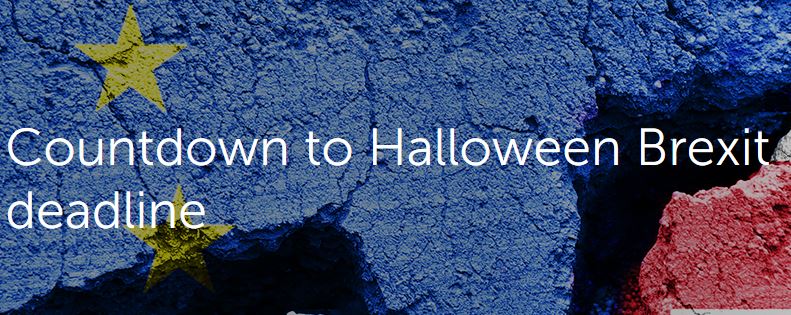As parliament closes in order to prepare for a Queen’s Speech, the clock continues to tick on the Brexit deadline
An announcement is expected by the end of this week, with the return of parliament on 14th October and the announcement of the government’s legislative agenda poised to potentially offer the clearest indication of the way forward. The crucial two-day summit of EU leaders takes place on the 17th and 18th October, and after that the PM must have achieved a deal or request an extension to avoid a no deal. It’s a tight schedule with a lot of uncertainty, and that may mean that there could be a high measure of volatility in the currency market and the pound’s value.
Does it look like the pound is set to improve this week?
Reports that French and German leaders Macron and Merkel have given the UK’s revised plan short shrift suggest that an agreement this week is unlikely. Irish PM Leo Varadkar has significant doubts about the current plans and rumours of a nine-point rejection response may be an indication of how the EU is likely to respond. The Benn Act expressly prohibits the UK leaving without a deal, so unless the government can find a loophole, a further extension to the deadline is looking almost inevitable. The pound may have the opportunity to make gains as an extension increases the likelihood of an agreement, but depending on the progress of the negotiations, it may not last for long.
What happens if the UK and the EU reach a deal?
If the UK can reach an agreement with the EU this week, the pound may make gains against the euro, the US dollar and a basket of major currencies. The effect may not be immediate – or at least, it may not be a sustained response. The market will be positive about a deal to provide a measure of certainty, but sterling may then fall back afterwards as the market awaits the final verdict of Parliament, which must vote on any proposed deal.
What will happen to sterling if there’s a General Election?
Analysts are considering the prospect of a November General Election. If the current PM fails to reach a deal and is forced into requesting an extension rather than leave without a deal, then the next step must be a general election to break the deadlock. This could put sterling under more pressure as the Brexit uncertainty is compounded over who will triumph in the polls – and what this may mean in the long term for the UK’s membership to the EU, as well as the economy.
Is Brexit the only factor influencing the pound?
As well as reactions to the latest political developments, concern over Brexit has led to decreases in economic performance. Christian Schultz, the chief UK economist at Citi suggested that the UK’s economy had shrunk by £60bn since the EU referendum in 2016. A report from the Institute of Fiscal Studies suggests that the cost of a no-deal Brexit would push the UK into its highest level of debt since the 1960s. Public debt can drive inflation and while it may stimulate the domestic economy, it can deter foreign investment and ultimately could put the pound under even more pressure.
What happens next?
A recent Reuters’ poll shows that the market expects the pound to rally once Brexit is made final – but it remains on tenterhooks until that time. Investment bank Goldman Sachs recently stated that “The odds of agreement by the end-October deadline may still be below 50%, but the distribution of risks for sterling has improved over the last month.” There is an air of cautious optimism in the market, but there are few guarantees. If you have international payments to make, it may be worth giving us a call to talk through your requirements while the market remains volatile.
